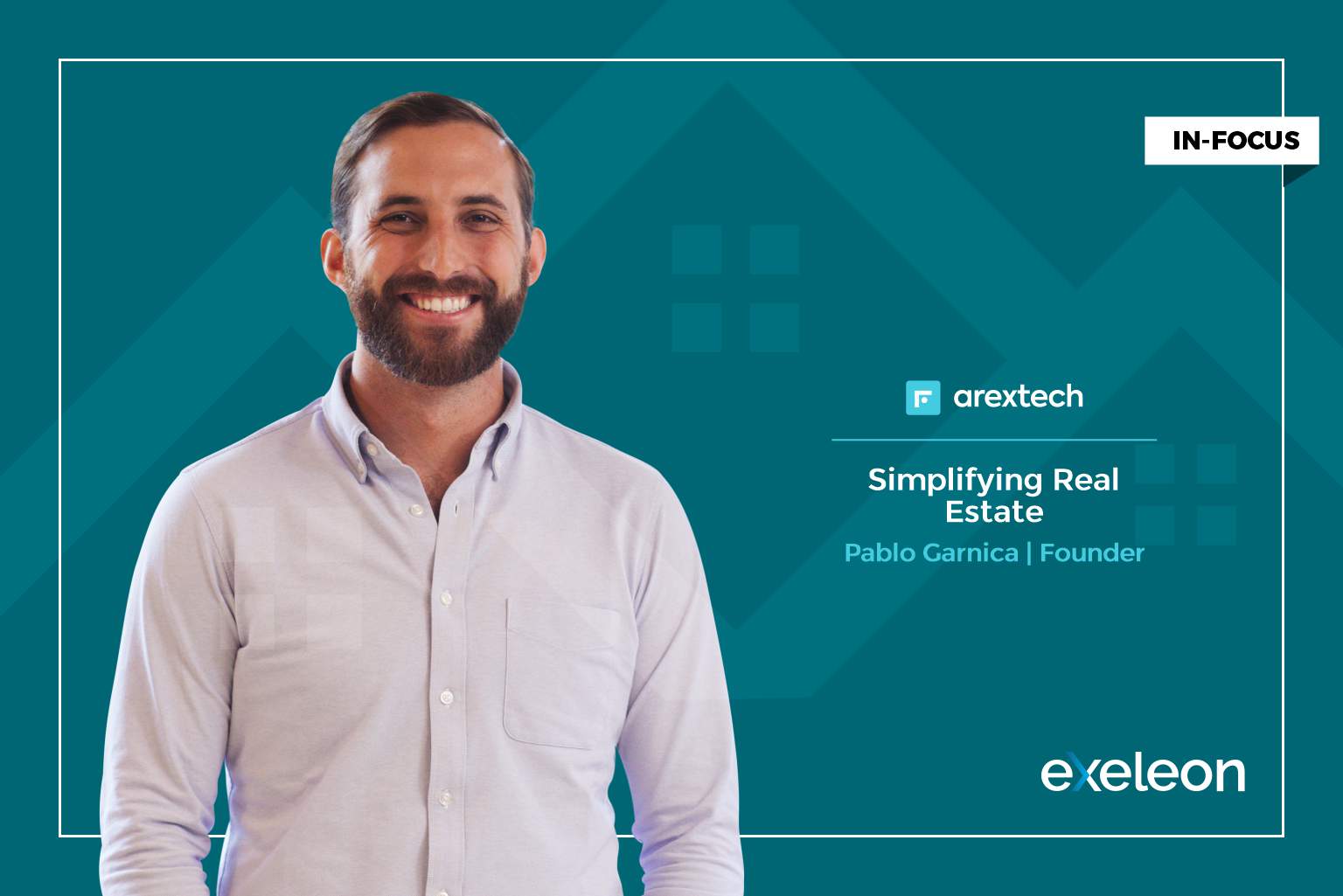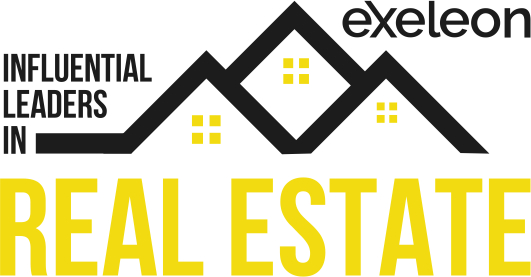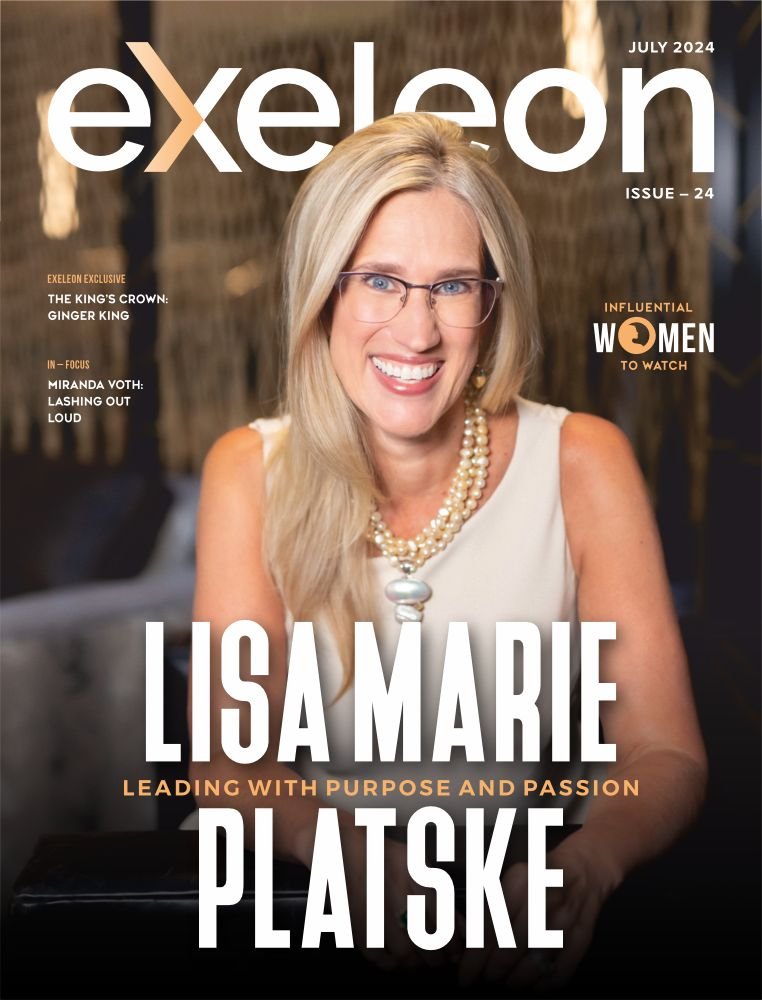
For Pablo Garnica, real estate was never his area of interest. However, his knack of wanting to solve problems and build things facilitated a long-standing relationship with the real estate industry.
With the unique vision of bridging the digital gap in the Real Estate investment market, Pablo along with his Co-Founder started Arextech, a company that builds real estate investment software for investors aiming to leverage data network effects.
Exeleon interviews this influential leader from the industry to know more about his journey, vision, and about Arextech.
What, according to you, makes one an influential leader? How do you integrate the same thought into your leadership?
In my experience, the best and most effective leaders have motivated people to want to achieve common goals as if they were their own. They are less like enforcers and more like advocates for a bigger purpose. An influential leader makes people’s work’s value clear and is eloquent in articulating the mission’s goal.
In my mind, there’s a difference between being a leader and being in power. Most people have experienced situations where these roles were held by different people in an organization. Being in power means that when someone you work with asks “why?” you can get away with “Because I said so”. Being a leader is having a better answer.
Talk to us about your growing up years. What prompted your interest and your foray into the real estate space?
I’ve never had a particular interest in real estate, or at least that’s what I thought. My interests lay more in solving problems and building things (no pun intended). But I’ve always been annoyed to hear “that’s the way it’s always been done” or “that can’t be done”. These answers were commonplace in almost anything relating to real estate leading up to this venture.
The attractiveness of the real estate problem lies in both the challenge of being part of the next (long overdue) wave of disruption and the potential that lies in solving it.
Its potential is undeniable. There are few things so universal that, one way or another, everyone in the world is a real estate client at some point in their life.
What was the idea that led to the formation of Arextech? What was the thought behind the name of the company?
It was more pull than push.
I worked in finance, offering investment advisory and execution for all types of assets, liquid, and alternative. The one thing we didn’t provide our clients was direct investments in real estate. My Co-founder, Miguel, and I began discussing options to transact real estate digitally, making it faster, safer, and cheaper. It still baffles us that the average cost of transacting real estate amounts to 10% of the asset’s value under the best circumstances.
We socialized the idea of potentially using blockchain for this purpose, and we started getting more traction than expected, to the point where we received recognition and awards internationally. I had a decision to make and eventually decided to go for it. We have since then adapted our business to address the reality of the digital gap in real estate, focusing on process digitalization.
The company’s name comes from our initial vision of making real estate investing more like current liquid investments. The “A” in AREX comes from the name we gave to the first formal project we presented to a competition (Aura), and “REX” is an acronym for Real Estate Exchange.
As the Founder, what role do you play in the day-to-day proceedings of the company?
There isn’t much difference between founders and non-founders if you look at the day-to-day. We each have our responsibilities and strive towards common goals in our respective areas.
As founders, I’d say that we have the extra job of putting it all together and building a narrative that does justice to everyone’s work and sets us up to achieve our long-term goal.
What is the process/approach followed by Arextech to ensure optimal client satisfaction?
We obsess about the problem, not our product. We can only satisfy our clients if we are solving a problem. This isn’t a novel approach, as others have expressed this idea before us, but it seems this notion is lost early in digital product companies.
Our approach requires a thorough understanding of the problem and those who suffer it the most. We can systematically find the right clients and focus on innovating how we drive value instead of innovating for innovation’s sake alone.
This is particularly relevant for us because we’re pushing for a new and better way of doing things. It’s an evangelist sale instead of a discount sale. The value of what is delivered is clear (and already commoditized) in a discount sale, and the critical decision factor is almost entirely down to pricing. Evangelist sales are more complicated.
Intimate knowledge of the problem real estate investors face is a credential for our clients that turns us into a partner rather than a mere seller. This approach aligns our interests with our clients’.
What has the journey been like for Pablo Garnica over the years? Looking back, what would you have done differently when starting?
My perception of my story changes over time, even if the facts remain the same. It’s probably because some aspects and stages take longer to distil into lessons.
This chapter is relatively recent, so any conclusions specific to it will be feeble because it’s still unfolding.
However, looking at the broader journey, I can say that I couldn’t have planned or designed it. With that in mind, the one thing that I would change is the energy spent on being vexed when things turn out differently than I expected. More and more, I strive to focus on the process, be satisfied with what I do, and be less concerned about the outcome.
This isn’t to say the outcome is irrelevant – it’s likely the only thing the world will ever see, which is why it is vital to review your own story and be honest about it to continue to succeed or do better next time. Review your story periodically, and instead of wondering: “why did this happen/not happen”, better think: “how/when will I use this” and “where does this leave my overarching story”.
What would be your advice for aspiring and emerging business leaders and entrepreneurs?
At the beginning of this venture, I would think that keeping occupied would lead to things happening. It’s not the case.
Make sure that you build processes that work for you and not the other way around. Often, we are our own worst enemy when we burden our present and future selves with busy work.
My advice is to focus on staying productive, not busy.
Finally, what does the future look like for you and Arextech?
Following these past transformative years, I’m optimistic that the need for a paradigm shift is, at the very least, apparent to key stakeholders. This, combined with the recent work carried out by Arextech, puts us in a position to be an effective agent of change in real estate investing.
As for me, I strive to continue to work on problems worth solving, not too worried about what that path may look like.










